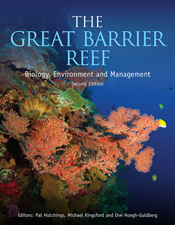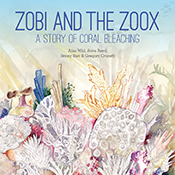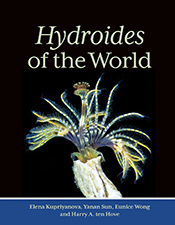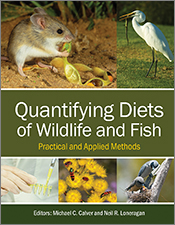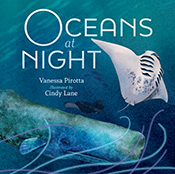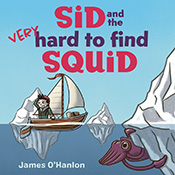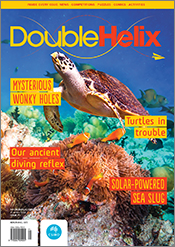The Great Barrier Reef
Biology, Environment and Management
Second Edition Edited by: Pat Hutchings, Michael J Kingsford, Ove Hoegh-GuldbergDescribes the animals, plants and other organisms of the reef, and the biological, chemical and physical processes that influence them.
The iconic and beautiful Great Barrier Reef Marine Park is home to one of the most diverse ecosystems in the world. + Full description
With contributions from international experts, this timely and fully updated second edition of The Great Barrier Reef describes the animals, plants and other organisms of the reef, as well as the biological, chemical and physical processes that influence them. It contains new chapters on shelf slopes and fisheries and addresses pressing issues such as climate change, ocean acidification, coral bleaching and disease, and invasive species.
The Great Barrier Reef is a must-read for the interested reef tourist, student, researcher and environmental manager. While it has an Australian focus, it can equally be used as a reference text for most Indo-Pacific coral reefs.
- Short descriptionNews
Sales in Australia and New Zealand only. Elsewhere, this title is available through CRC Press [external link].
Reviews
"Critically, in combining cutting edge science with the identification of management challenges on the horizon, this collection is also a useful guide to managers who wish to incorporate insights into their suite of management tools, placing this book at the forefront of the coral reef science literature.
Dr Sarah Hamylton, Reef in Review (48), 2019
"Reading through the book reminded me of undergraduate years when at times I needed to find specific information to answer particular questions. Navigating the book is easy and makes sense. Although the authors’ disciplinary backgrounds and the topics being addressed require precise jargon, the book is written in accessible language."
Francisco Gelves-Gómez, Australasian Journal of Environmental Management 26(4), 2019
"The Great Barrier Reef: Biology, Environment and Management provides an important contribution to increasing understanding of this region, its environment and its challenges. Each chapter is authored by an expert in the relevant field, with the text designed to be accessible to the general reader. The editors and contributors are to be congratulated on the presentation of material, and the publisher (CSIRO Publishing in association with CRC/Balkema) has supported the excellence of the text with high quality of production."
Marcus Haward, Australian Journal of Maritime and Ocean Affairs 11(3), 2019
"This book raises awareness of the complexity of the reef in a manner that is digestible and equally relevant to reefs, and reef enthusiasts, elsewhere around the globe."
Beth Toki, Australian Marine Science Bulletin 206(1), December 2019
"This book is a ‘must have’ for anyone who wants to be well-educated about coral reefs. The time spent reading this book will be enjoyable and well spent, and pay dividends in knowledge about not just the Great Barrier Reef, but the whole world’s reefs."
Douglas Fenner, Pacific Conservation Biology 27(2). 2021
Details
Paperback | February 2019 | $125.00ISBN: 9781486308194 | 488 pages | 270 x 210 mm
Publisher: CSIRO Publishing
Colour photographs, Illustrations
ePDF | February 2019
ISBN: 9781486308200
Publisher: CSIRO Publishing
Available from eRetailers
Features
- Up-to-date and accessible account of the issues that face the world’s most complex marine ecosystem
- Examines the diversity, physiology, ecology and conservation of the reef, as well as its role in monitoring global warming
- Written by leading authorities on the biodiversity of the Great Barrier Reef and highly illustrated throughout
Contents
ForewordAcronyms
Author biographies
1: Introduction to the Great Barrier Reef
Section 1: Nature of the reef
2: Geomorphology of Coral Reefs with Special Reference to the Great Barrier Reef
3: The Great Barrier Reef in Time and Space: Geology and Palaeobiology
4: Oceanography
5: Coral Reef Habitats and Assemblages
6: Seabed Environments, Habitats and Biological Assemblages
7: The Great Barrier Reef outer-shelf
8: Primary Production, Nutrient Recycling and Energy Flow through Coral Reef Ecosystems
9: Calcification, Erosion and the Establishment of the Framework of Coral Reefs
Section 2: Factors affecting the reef
10: Fisheries of the Great Barrier Reef
11: Disturbances and pressures to coral reefs
12: The Future of Coral Reefs in a Rapidly Changing World
13: Terrestrial Runoff to the Great Barrier Reef and the Implications for Its Long Term Ecological Status
14: Planning and Managing the Great Barrier Reef Marine Park
Section 3: Overview of reef biodiversity and organisms
15: Biodiversity of organisms?
16: Plankton
17: Macroalgae
18: Mangroves and Seagrasses
19: Sponges
20: Pelagic Cnidaria and Ctenophora
21: Hexacorals 1: Sea Anemones and Anemone-like Animals (Actiniaria, Zoanthidea, Corallimorpharia, Ceriantharia and Antipatharia)
22: Hexacorals 2: Reef-building or Hard Corals (Scleractinia) including updates re concept of coral species
23: Octocorals
24: Worms
25: Arthropoda: Crustaceans and Pycnogonids
26: Mollusca
27: Bryozoa
28: Echinodermata
29: Tunicata
30: The Fish Assemblages of the Great Barrier Reef: Their Diversity and Origin
31: Marine Reptiles and Marine Mammals
32: Seabirds
Epilogue
Index
View the full table of contents. (PDF, 84kb)
Authors
Pat Hutchings is a Senior Fellow at the Australian Museum Research Institute, having retired in 2016 as a Senior Principal Research Scientist at the Australian Museum. She has spent her research career working on the systematics and ecology of polychaetes, especially on coral reefs. As well as publishing extensively, she is an active member of the Australian Coral Reef Society, which recognised her contributions through honorary life membership.
Mike Kingsford is a Distinguished Professor in the Marine Biology and Aquaculture group of the College of Science and Engineering at James Cook University. He has over 30 years' research experience on the Great Barrier Reef and has published extensively on the ecology of reef fishes, jellyfishes, biological oceanography and climate change. He is also a Chief Investigator with the ARC Centre of Excellence for Innovative Coral Reef Studies.
Ove Hoegh-Guldberg is Professor of Marine Science and Director of the Global Change Institute at the University of Queensland. An internationally recognised expert in his field, he has published extensively on the ecology of coral reefs and has contributed to reports by the Intergovernmental Panel on Climate Change. He has received numerous prizes including a Eureka Prize, Thomson Reuters Citation Award, an Australian Research Council Laureate Fellowship and the Climate Change Prize from HSH Prince Albert II of Monaco.
Contributors:
S. T. Ahyong, P. Alderslade, T. J. Anderson, P. Bock, P. Bongaerts, T. Bridge, J. Brodie, M. Byrne, D. Cameron, A. Chin, J. H. Choat, B. C. Congdon, A. L. Crowther, J. C. Day, G. Diaz-Pulido, P. J. Doherty, S. Dove, N. C. Duke, M. Ekins, K. Fabricius, L. Gershwin, D. P. Gordon, H. Heatwole, O. Hoegh-Guldberg, M. O. Hoogenboom, J. N. A. Hooper, D. Hopley, P. A. Hutchings, G. P. Jones, R. Kelley, M. J. Kingsford, A. W. D. Larkum, V. Lukoschek, H. Marsh, A.D. McKinnon, J. M. Pandolfi, C. R. Pitcher, M. S. Pratchett, B. C. Russell, R. Saunders, T. L. Sih, S. Smithers, M. Srinivasan, C. Syms, C. C. Wallace, J. M. Webster, R. C. Willan, E. Wolanski.

